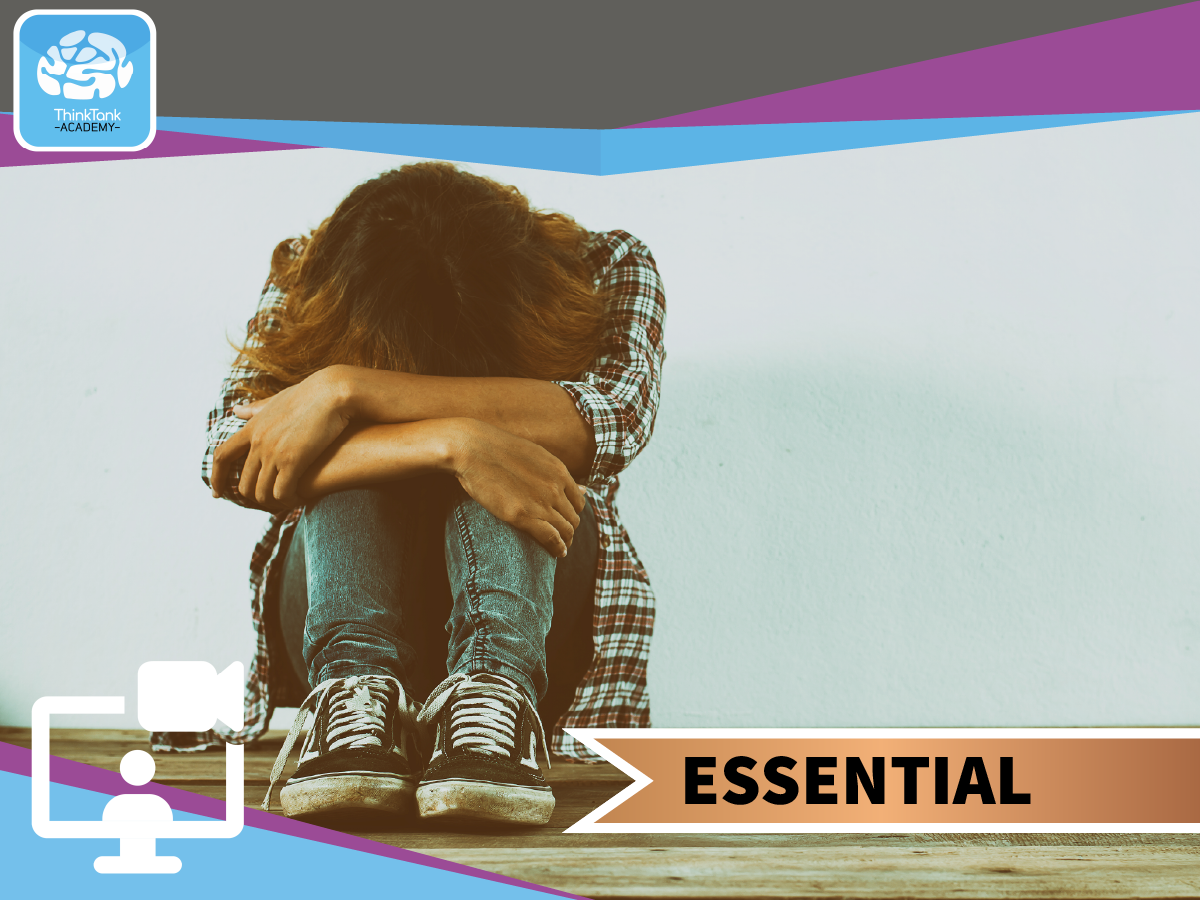
Child Sexual Exploitation - Children's Care - Essential Level
Course Overview This is a training session for people working with Children and Young People who are victims of Sexual Exploitation. This course aims to raise awareness of the differences between Child Sexual Exploitation and other forms of abuse. It will provide learners with an understanding and awareness of the impact and prevalence of sexual exploitation and how victims are identified and targeted. It will outline the stages of grooming and will discuss the lessons learned from the Serious Case Reviews. The course features a range of group work, activities and discussions to enhance learner skill development. This course offers a blended learning approach including a short scenario, a workbook and infographics to enhance the learning experience. This course can be delivered in face-to-face classroom environment or a virtual classroom via a webinar: on PC, laptop etc. For mobile phones it is recommended to use the app for IOS or Android devices. Aims & Objectives Help the learner to differentiate between Sexual Exploitation and other forms of abuse To form an understanding of the scale and prevalence of Sexual Exploitation within society To identify the stages of Grooming To demonstrate an understanding of best practice Course Audience Health Care Workers, Social Care Workers, Children’s Centre Practitioners, Youth Workers, Education Workers and Police/ Probation staff

Recording and Reporting - Children's Care - Essential Level
Course Overview This course is designed to improve recording and reporting practices in children's health and social care sector. All major high profile serious case reviews have found that recording mistakes were present. The course identifies correct practice and processes for the handling, storing and processing of data including the GDPR legislation and what must be recorded and how by distinguishing the differences between fact, opinion and judgement for professional documentation. It also provides guidance for effective and sufficient reporting of incidents within a care setting. The positive aspects of recording such as Life story Work which is imperative for identity purposes of the Children and Young People that we work with are included. This course can be delivered in face-to-face classroom environment or a virtual classroom via a webinar: on PC, laptop etc. For mobile phones it is recommended to use the app for IOS or Android devices. Aims & Objectives Describe why reports have to be written Explain the meaning of ‘ethical writing’ Identify what to include in reports Recognise the difference between fact, opinion, judgement and hearsay Display documentation Course Audience This course is designed for Practitioners working with Families or Children and Young People.
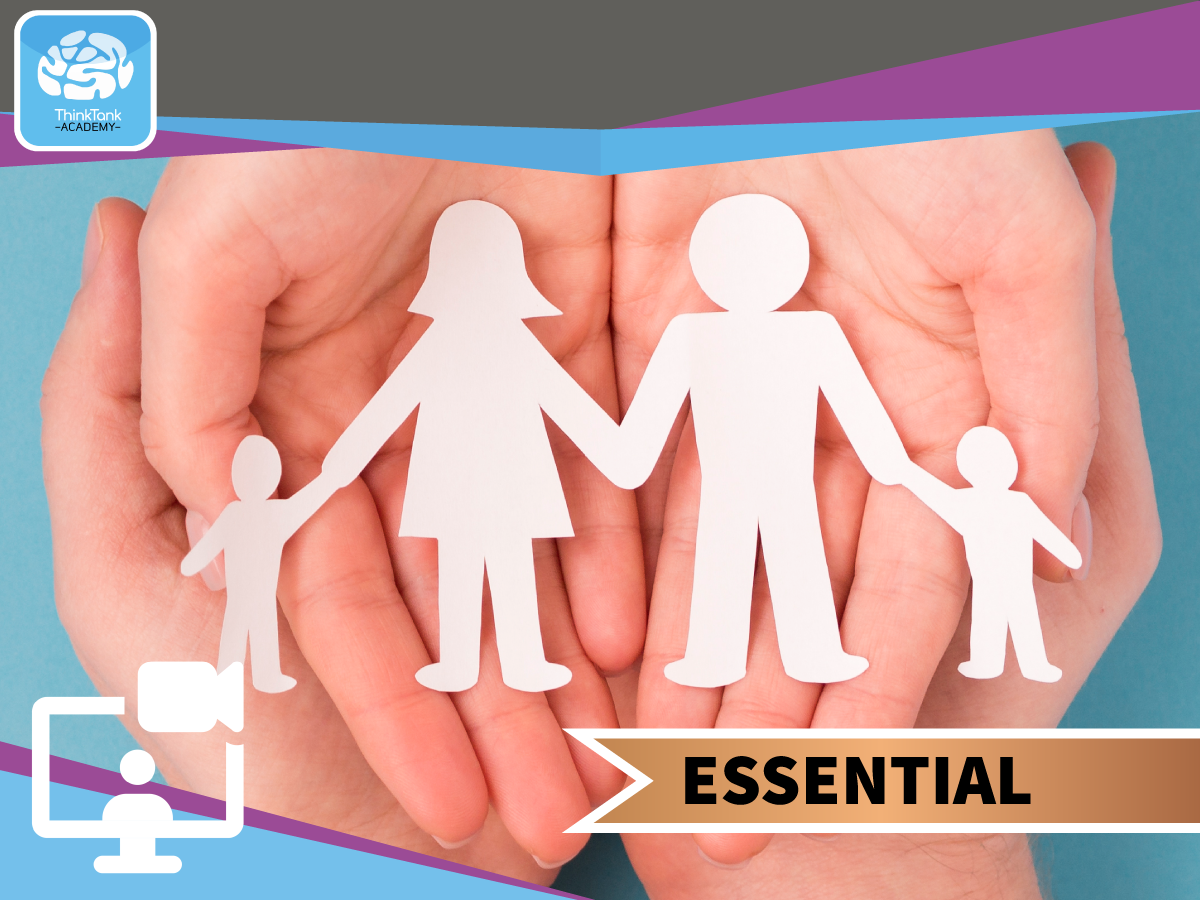




Safeguarding Children - Children's Care - Essential Level
Course Overview This course provides progression from the Safeguarding Children Foundation Level Online course. This is a training session for people working with children and young people. Learners will be encouraged to think about their responsibilities in safeguarding, the process to follow when allegations and disclosures are made and how to respond to poor practice. The course features a range of group work, activities and discussions to enhance learner skill development. This training session can be accessed via a link and is accessible from a range of devices including IOS and Android platforms. This course offers a blended learning approach including a short scenario, a workbook, infographics and a classroom style training session. Aims & Objectives Understanding what Safeguarding means in relation to Children Identify why children are vulnerable and what the signs and indicators are Understand how to respond and record and what needs to be reported Identify what poor practice and what unsafe practice looks like Understand how to whistle blow and what this means Introduce the Complaints Procedure and policies in relation to this Course Audience Health Care Workers, Social Care Workers, Support Centre Practitioners, Youth Workers, Children’s Support Worker, Nursing Staff, Residential Care Staff, Teachers, Psychologists and Assistants, Nursery Workers





Safeguarding Children - Children's Care - Essential Level
Course Overview This course provides progression from the Safeguarding Children Foundation Level Online course. This is a training session for people working with children and young people. Learners will be encouraged to think about their responsibilities in safeguarding, the process to follow when allegations and disclosures are made and how to respond to poor practice. The course features a range of group work, activities and discussions to enhance learner skill development. This training session can be accessed via a link and is accessible from a range of devices including IOS and Android platforms. This course offers a blended learning approach including a short scenario, a workbook, infographics and a classroom style training session. Aims & Objectives Understanding what Safeguarding means in relation to Children Identify why children are vulnerable and what the signs and indicators are Understand how to respond and record and what needs to be reported Identify what poor practice and what unsafe practice looks like Understand how to whistle blow and what this means Introduce the Complaints Procedure and policies in relation to this Course Audience Health Care Workers, Social Care Workers, Support Centre Practitioners, Youth Workers, Children’s Support Worker, Nursing Staff, Residential Care Staff, Teachers, Psychologists and Assistants, Nursery Workers





Safeguarding Children - Children's Care - Essential Level
Course Overview This course provides progression from the Safeguarding Children Foundation Level Online course. This is a training session for people working with children and young people. Learners will be encouraged to think about their responsibilities in safeguarding, the process to follow when allegations and disclosures are made and how to respond to poor practice. The course features a range of group work, activities and discussions to enhance learner skill development. This training session can be accessed via a link and is accessible from a range of devices including IOS and Android platforms. This course offers a blended learning approach including a short scenario, a workbook, infographics and a classroom style training session. Aims & Objectives Understanding what Safeguarding means in relation to Children Identify why children are vulnerable and what the signs and indicators are Understand how to respond and record and what needs to be reported Identify what poor practice and what unsafe practice looks like Understand how to whistle blow and what this means Introduce the Complaints Procedure and policies in relation to this Course Audience Health Care Workers, Social Care Workers, Support Centre Practitioners, Youth Workers, Children’s Support Worker, Nursing Staff, Residential Care Staff, Teachers, Psychologists and Assistants, Nursery Workers
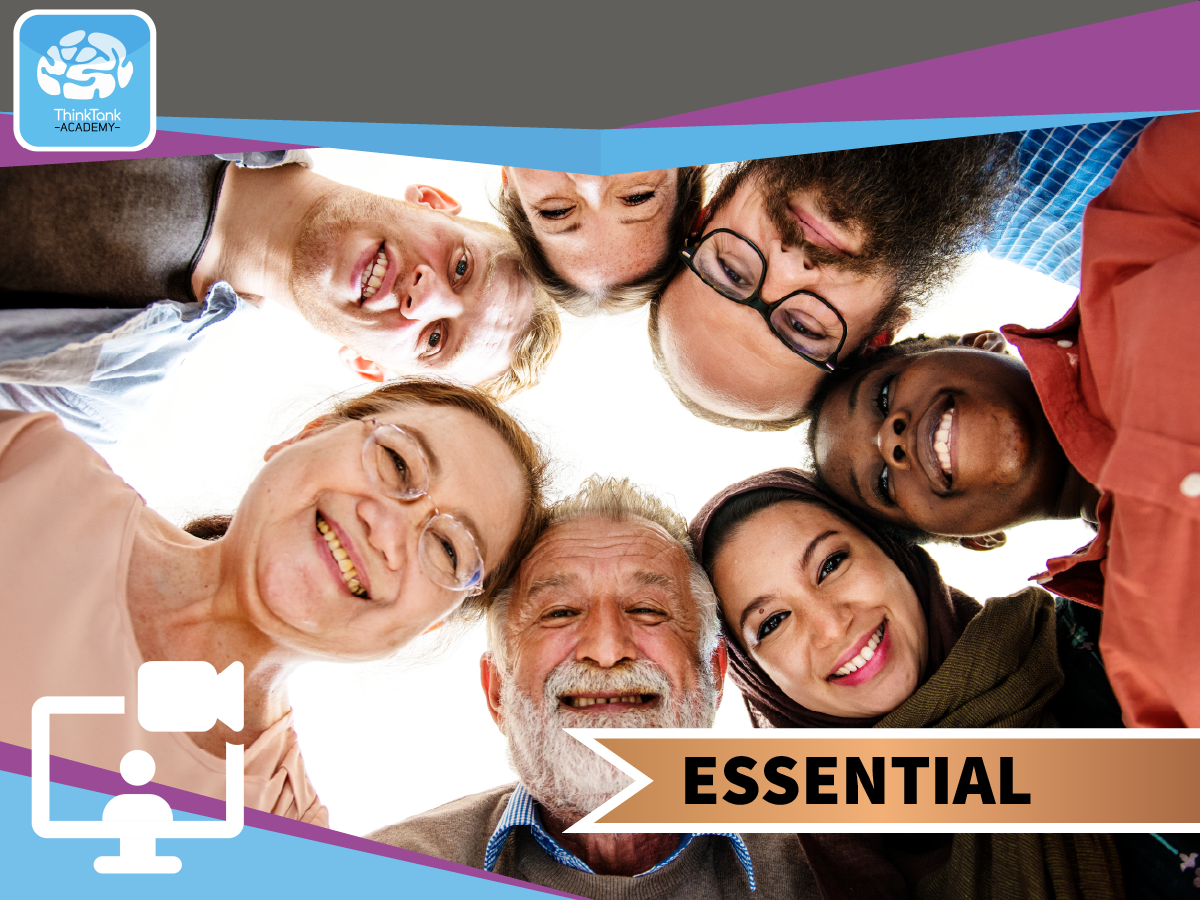

Equality and Diversity - Adult and Children's Care - Essential Level
Course Overview Equality and Diversity - Adult and Children's Care - Essential Level training course provides progression from the Equality and Diversity – Foundation Level and builds upon the information and guidance provided within that course. Within this course we will raise awareness of the impact that discrimination has and how this can present itself. We will discuss the many forms of discrimination and the consequences of this and will provide the learner with practical advice to overcome discrimination within the workplace and how to create an inclusive culture where Equality and Diversity underpins everything you do. This training session can be accessed via a link and is accessible from a range of devices including IOS and Android platforms. This course offers a blended learning approach including a short scenario, Kinesthetic games which can be used in the workplace, a workbook, infographics and a classroom style training session. Aims & Objectives To raise awareness of Equality and Diversity and demonstrate the impacts that it can have if not adhered to well Understand the terms Equality and Diversity and be able to demonstrate the difference between the two Identify different forms of discrimination Recognise protected characteristics Address and deal with incidents of discrimination Identify specific types of prohibited conduct Course Audience This is a cross sector course and will benefit all professionals, frontline workers and leaders.





Safeguarding Children - Children's Care - Essential Level
Course Overview This course provides progression from the Safeguarding Children Foundation Level Online course. This is a training session for people working with children and young people. Learners will be encouraged to think about their responsibilities in safeguarding, the process to follow when allegations and disclosures are made and how to respond to poor practice. The course features a range of group work, activities and discussions to enhance learner skill development. This training session can be accessed via a link and is accessible from a range of devices including IOS and Android platforms. This course offers a blended learning approach including a short scenario, a workbook, infographics and a classroom style training session. Aims & Objectives Understanding what Safeguarding means in relation to Children Identify why children are vulnerable and what the signs and indicators are Understand how to respond and record and what needs to be reported Identify what poor practice and what unsafe practice looks like Understand how to whistle blow and what this means Introduce the Complaints Procedure and policies in relation to this Course Audience Health Care Workers, Social Care Workers, Support Centre Practitioners, Youth Workers, Children’s Support Worker, Nursing Staff, Residential Care Staff, Teachers, Psychologists and Assistants, Nursery Workers



Recording and Reporting - Children's Care - Essential Level
Course Overview This course is designed to improve recording and reporting practices in children's health and social care sector. All major high profile serious case reviews have found that recording mistakes were present. The course identifies correct practice and processes for the handling, storing and processing of data including the GDPR legislation and what must be recorded and how by distinguishing the differences between fact, opinion and judgement for professional documentation. It also provides guidance for effective and sufficient reporting of incidents within a care setting. The positive aspects of recording such as Life story Work which is imperative for identity purposes of the Children and Young People that we work with are included. This course can be delivered in face-to-face classroom environment or a virtual classroom via a webinar: on PC, laptop etc. For mobile phones it is recommended to use the app for IOS or Android devices. Aims & Objectives Describe why reports have to be written Explain the meaning of ‘ethical writing’ Identify what to include in reports Recognise the difference between fact, opinion, judgement and hearsay Display documentation Course Audience This course is designed for Practitioners working with Families or Children and Young People.
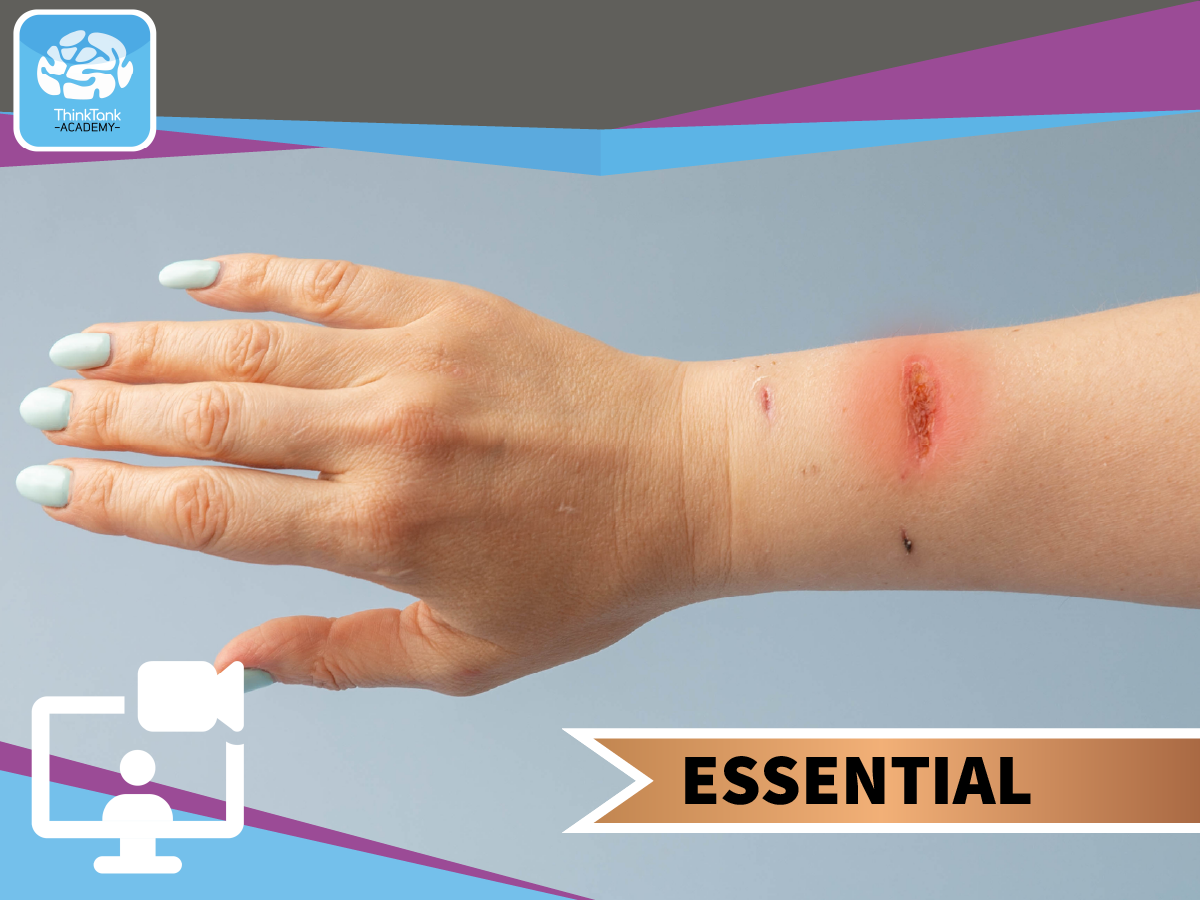


Self-Harm Awareness - Children's Care - Essential Level
Course Overview Self-Harm Awareness - Children's Care - Essential Level training course outlines the basic understanding of self-harm and suicide. It explores ways to prevent and reduce harm caused by children and young people within the work environment. Included are different strategies and techniques to be referred and incorporated into practice. Learners will be able to identify common signs and symptoms of an individual who self-harms as well as be able to relate to the likelihood of individuals to attempt suicide. It has been designed to develop tools and techniques to be used to respond to self-harm and suicide ideation. This course can be delivered in face-to-face classroom environment or a virtual classroom via a webinar: on PC, laptop etc. For mobile phones it is recommended to use the app for IOS or Android devices. Aims & Objectives Give an understanding of self-harm and suicide Understand the associated risk factors Explore harm minimisation and prevention Increase our confidence Provide tools and techniques to respond to suicide ideation and self-harm Resources & Links Course Audience This course is designed for people who work in the social care sector with children and young people who may be at risk of self-harm or suicide.


Mental Capacity Act and DoLS - Adult and Children's Care - Essential Level
Course Overview This course is designed to provide leaners with a deep insight into Deprivation of Liberty Safeguards. It provides information around what the legislation is, who is involved and how it is implemented into the care provision. It explains the reasons why we remove liberty from some individuals and also explains the decisions that cannot be made on a DoLS order. It provides a brief synopsis of the Mental Capacity Act and how this is linked to DoLS and how it shapes the decisions that are made for the individual by a DoLS order and includes the 5 Statutory principles that underpin the legislation. Advice is also given on how to establish a person’s best interest and when not to take liberty away. Aims and Objectives Provide an overview of relevant legislation Explain the Mental Capacity Act Outline the 5 Statutory principles Provide guidance on decision making Give an understanding of DoLS Provide guidance on Best Interest Decisions State who else can be involved Highlight the importance of good record keeping Course Audience Anyone working in the Health and Social Care sector
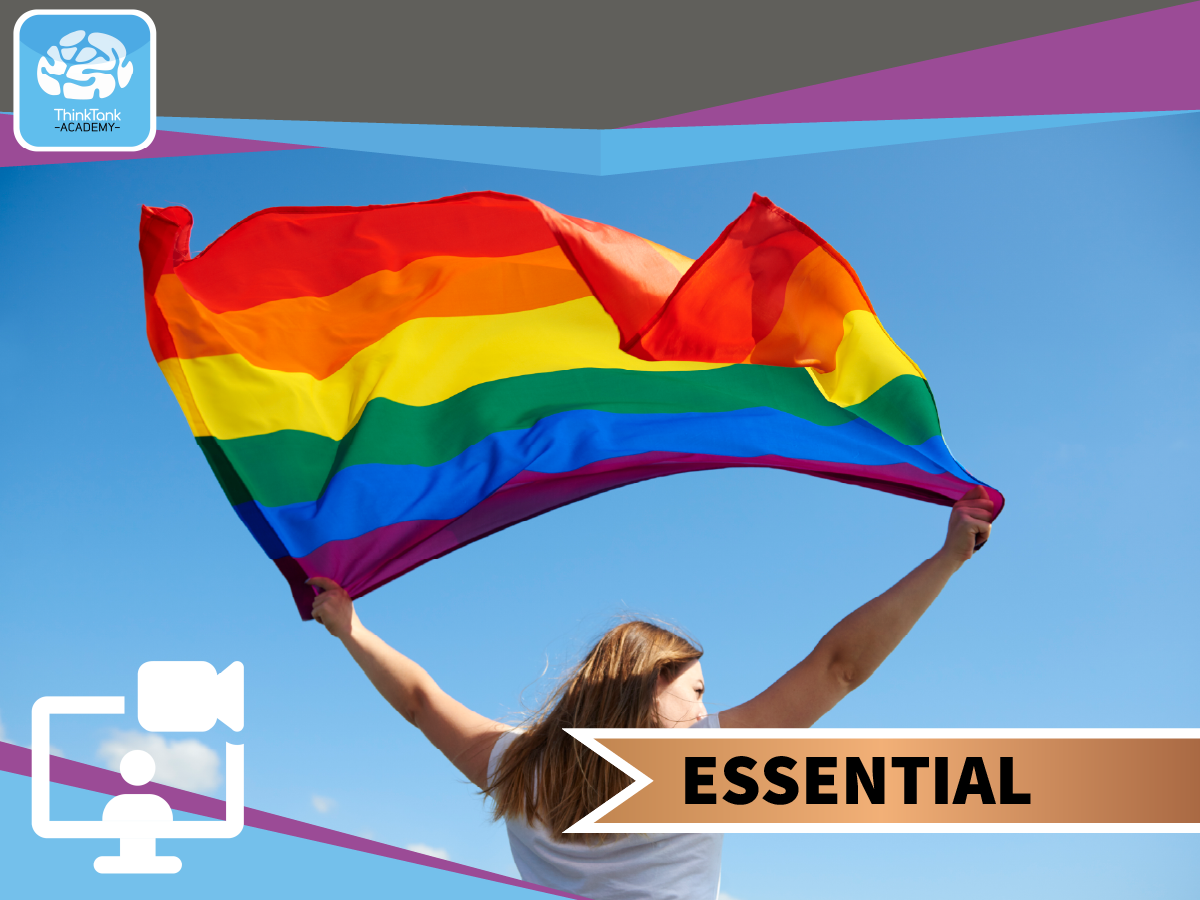


LGBTQIA+ - Children's Care - Essential Level
Course Overview LGBTQIA+ - Children's Care - Essential Level training course will give an insight into the challenges that Children and Young People face with their identity and sexuality and raise awareness of how attitudes and stereotypes can have a negative effect on Children and Young People. This training provides a background in LGBTQIA+ that helps learners to understand how things have developed in the last 50 years. It explains the legislation in place and the laws around being LGBT. Also included is advice for practitioners on how they can support Children and Young People with LGBTQIA+ issues. Aims & Objectives Define LGBTQIA+ and explain the letters in the acronym Explain terms related to LGBTQIA+ Discuss the law, legislation and international laws Highlight the negative aspects and stereotypical views Investigate what is being done to improve things Provide a list of resources for support Course Audience Anyone who works closely with Children and Young People from various sectors.
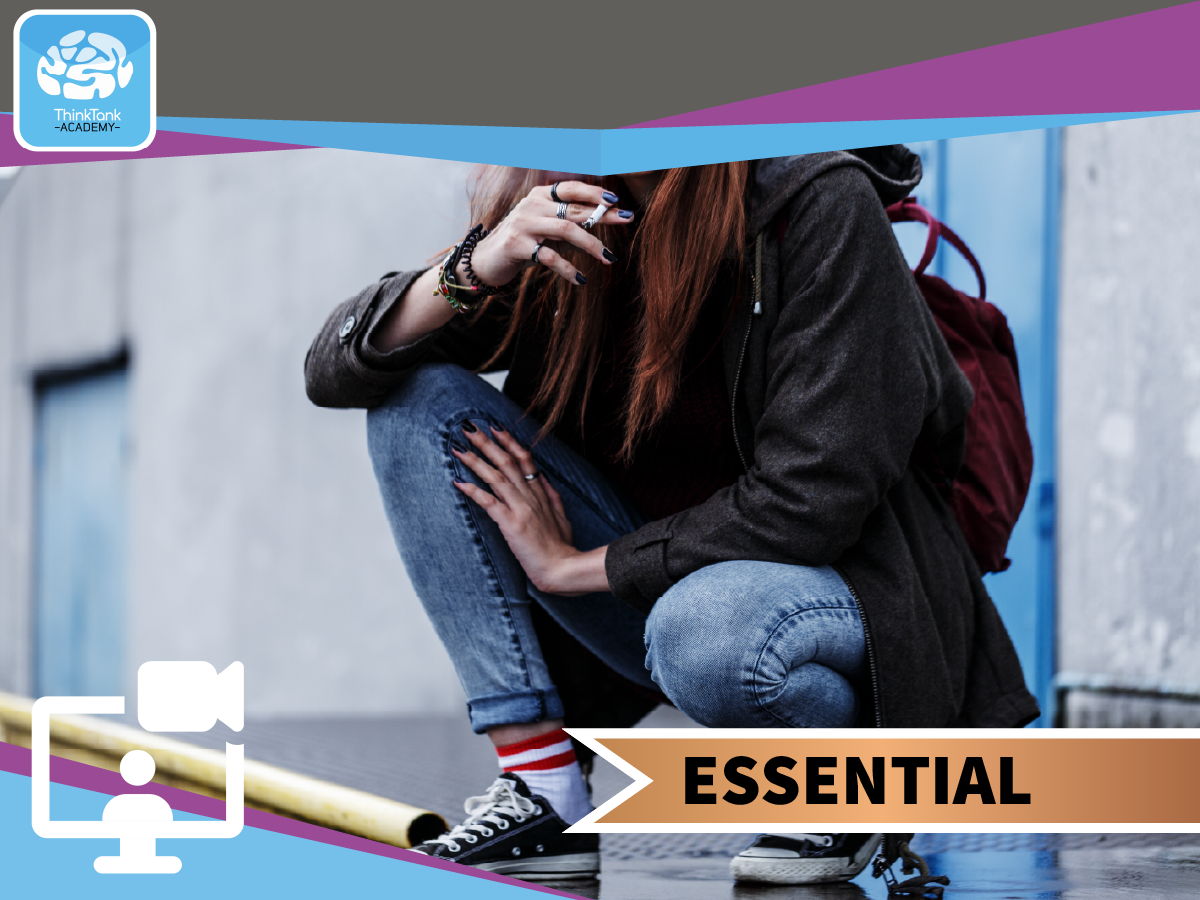

Missing From Care - Children's Care - Essential Level
Course Overview Missing From Care - Children's Care - Essential Level training course is a training session for people working with children and provides progression from our Missing from Care Foundation Level Online course. Learners will be supported to understand the importance of their role in preventing and proactively distracting children from going missing from care, will understand and define the signs and symptoms of the and also the procedures to follow when there is a missing episode. The course features a range of group work, activities including role play and discussions to enhance learner skill development. This training session can be accessed via a link and is accessible from a range of devices including IOS and Android platforms. This course offers a blended learning approach including a short scenario, a workbook, infographics and a classroom style training session. Aims & Objectives To raise awareness of the risks associated with going Missing from Care and identify the learner’s role in prevention and incident management Understand the difference between the terms ‘missing from care’ and ‘absent from care’ Identify the risks of children going Missing from Care Describe their role in before, during and after a ‘Missing episode’ Course Audience Health Care Workers, Social Care Workers, Support Centre Practitioners, Youth Workers, Support Worker, Nursing Staff, Children’s Residential Care Workers
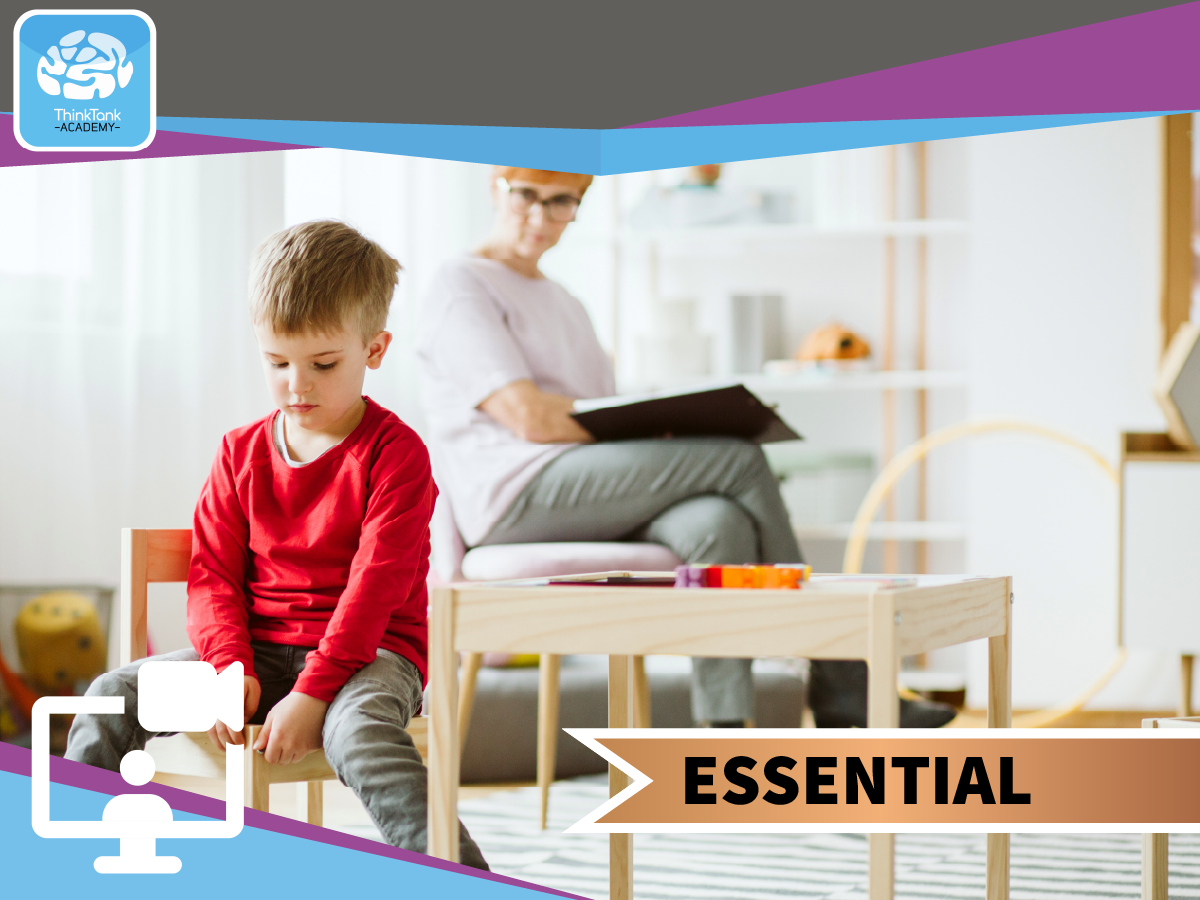

Autism Awareness - Adult and Children's Care - Essential Level
Course Overview Autism Spectrum - Adult and Children's Care - Essential Level training course has been designed for those who are working with Children and Adults with Autistic Spectrum Disorders in the home, classroom or residential environment. It aims to provide the learners with an insight into the lives of people who live with the condition in order for them to then provide appropriate and effective care. It also highlights the importance of adopting a person-centred approach to the teaching and learning of people who have the condition. The course features a range of group work, activities including role play and discussions to enhance learner skill development. This training session can be delivered in both a face-to-face or virtual classroom setting. For mobile phones it is recommended to use the app for IOS or Android devices. Aims & Objective An explanation of Autism Spectrum Disorder (ASD) Outline how ASD affects the way a person communicates and relates to people around them Provide awareness of the behaviour exhibited by some people with Autism Provide strategies to support people with Autism Discuss the importance of person-centred care planning Course Audience Psychologists, Teachers, Speech Therapists, Learning Support Assistants, Residential Social Workers, Health Care Workers, Social Care Workers, Support Centre Practitioners, Youth Workers, Support Worker, Nursing Staff, Children’s Residential Care Workers, Education workers.



Life Story Work - Children's Care - Essential Level
Course Overview Life Story Work - Children's Care - Essential Level training course is designed to aid understanding and awareness of Life Story Work, it encourages each learner to reflect on their practices and others. An insight into the importance of Life Story Work especially in regard to identity. We will introduce models and strategies to improve Life Story Work and activities to support the learner will professional application in their areas of work, this will include recognising cultural, ethnical and disability needs and diversities. The course will also outline the importance of collecting relevant items as well as how to effectively support the individuals. The course will introduce a range of group work sessions with reflective practice built in to enable them to take this back to the children they support. There are also interactive activities and discussions to enhance learner skill development. This training session can be accessed via a link and is accessible from a range of devices including IOS and Android platforms. This course offers a blended learning approach including a short scenario, a workbook, infographics and a classroom style training session. Aims & Objectives Consider the impact of early childhood experiences and the importance of Life Story Work Understand the emotional impact of Life Story Work on children and carers Gain knowledge legislation, the aims and principles of Life Story Work Recognise barriers to Life Story Work and learn how to overcome them Be aware of the importance of identity in Life Story Work including cultural diversity Course Audience Residential Care Workers, Health Care Workers, Social Care Workers, Children’s Centre Practitioners, Youth Workers
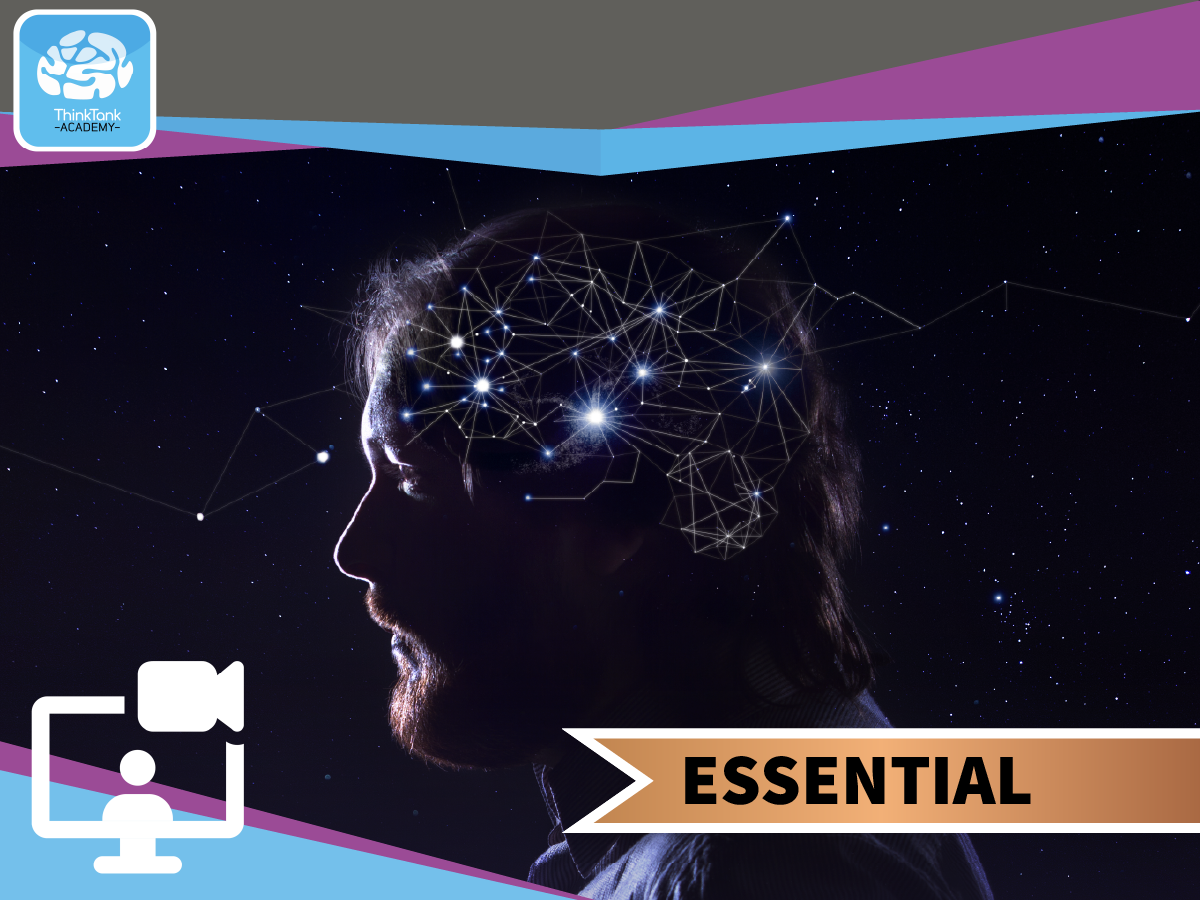

Epilepsy and Buccal Midazolam - Adult and Children's Care - Essential Level
Course Overview Epilepsy and Buccal Midazolam - Adult and Children's Care - Essential Level training course provides training session for people working with people who have Epilepsy and use Midazolam or Buccal medication to manage this. This is an Essential Skills course and will cover the types of Epilepsy, an insight into how the brain is affected and the impact of seizures. There is also information on the impact that midazolam and Buccal have on people who suffer from Epilepsy. There is a professional competency section on how to safely administer anti Epilepsy medications including how to store these. This training session can be accessed via a link and is accessible from a range of devices including IOS and Android platforms. This course offers a blended learning approach including a short scenario, a workbook, infographics and a classroom style training session. Aims & Objectives Define Epilepsy and associated conditions and provide facts to safeguard Research the causes and symptoms of Epilepsy Highlight how seizures can be triggered, how to respond to them and how to assist Discuss legislation and interventions that are available to people who suffer from Epilepsy Educate on use of Buccal and Midazolam Look at alternatives to Buccal and Midazolam Provide information on how to support people with Epilepsy Course Audience This is a cross sector course and will benefit all professional’s, frontline workers and leaders



Self-Harm Awareness - Children's Care - Essential Level
Course Overview Self-Harm Awareness - Children's Care - Essential Level training course outlines the basic understanding of self-harm and suicide. It explores ways to prevent and reduce harm caused by children and young people within the work environment. Included are different strategies and techniques to be referred and incorporated into practice. Learners will be able to identify common signs and symptoms of an individual who self-harms as well as be able to relate to the likelihood of individuals to attempt suicide. It has been designed to develop tools and techniques to be used to respond to self-harm and suicide ideation. This course can be delivered in face-to-face classroom environment or a virtual classroom via a webinar: on PC, laptop etc. For mobile phones it is recommended to use the app for IOS or Android devices. Aims & Objectives Give an understanding of self-harm and suicide Understand the associated risk factors Explore harm minimisation and prevention Increase our confidence Provide tools and techniques to respond to suicide ideation and self-harm Resources & Links Course Audience This course is designed for people who work in the social care sector with children and young people who may be at risk of self-harm or suicide.



ADHD Awareness - Children's Care - Essential Level
Course Overview ADHD - Children's Care - Essential Level training course intends to provide learners with knowledge and understanding of what ADHD is and what it presents as. It includes the different types of ADHD and describes ineffectiveness, hyperactivity and impulsiveness and discusses the causes. Legislation and interventions are included that can be followed in the workplace. The activities encourage reflection that can be implemented into practice. There is a quiz to complete at the end of the course to consolidate learning. A session re-cap is held where the learner can ask any further questions and key factors are stated by the tutor. Learners are given the opportunity to evaluate their learning experience. This course can be delivered in face-to-face classroom environment or a virtual classroom via a webinar: on PC, laptop etc. For mobile phones it is recommended to use the app for IOS or Android devices. Aims & Objectives Have a basic understanding of what ADHD is Understand how as a carer we support a child or young person with ADHD ADHD and their types Girls and Boys and the effects Causes of ADHD Theory behind ADHD How is ADHD diagnosed Course Audience Practitioners in the health and social care sector.


Diabetes Awareness - Adult and Children's Care - Essential Level
Course Overview Diabetes Awareness - Adult and Children's Care - Essential Level training course is training session for people working with Children or Vulnerable adults or anyone that suffers from or supports someone with Diabetes. Learners will be supported to understand the legislation and guidance with respect to the condition and will provide guidance on how to support someone in the management of their Diabetes. The course features a range of group work, activities including role play and discussions to enhance learner skill development. This course offers a blended learning approach including a short scenario, a workbook and infographics. This course can be delivered in face-to-face classroom environment or a virtual classroom via a webinar: on PC, laptop etc. For mobile phones it is recommended to use the app for IOS or Android devices. Aims & Objectives Explain the different types of Diabetes Outline diabetes including the pancreas, glucose and insulin Provide awareness of the ways to store medication including pens, storage and sites Provide awareness of different considerations of Infection Control Discuss importance of monitoring blood glucose levels Course Audience Health Care Workers, Social Care Workers, Support Centre Practitioners, Youth Workers, Support Worker, Nursing Staff, Children’s Residential Care Workers, Education workers



LGBTQIA+ - Children's Care - Essential Level
Course Overview LGBTQIA+ - Children's Care - Essential Level training course will give an insight into the challenges that Children and Young People face with their identity and sexuality and raise awareness of how attitudes and stereotypes can have a negative effect on Children and Young People. This training provides a background in LGBTQIA+ that helps learners to understand how things have developed in the last 50 years. It explains the legislation in place and the laws around being LGBT. Also included is advice for practitioners on how they can support Children and Young People with LGBTQIA+ issues. Aims & Objectives Define LGBTQIA+ and explain the letters in the acronym Explain terms related to LGBTQIA+ Discuss the law, legislation and international laws Highlight the negative aspects and stereotypical views Investigate what is being done to improve things Provide a list of resources for support Course Audience Anyone who works closely with Children and Young People from various sectors.


Mental Capacity Act and DoLS - Children's Care - Essential Level
Course Overview Mental Capacity Act and DoLS - Children's Care - Essential Level training course is designed to provide leaners with a deep insight into Deprivation of Liberty Safeguards. It provides information around what the legislation is, who is involved and how it is implemented into the care provision. It explains the reasons why we remove liberty from some individuals and also explains the decisions that cannot be made on a DoLS order. It provides a brief synopsis of the Mental Capacity Act and how this is linked to DoLS and how it shapes the decisions that are made for the individual by a DoLS order and includes the 5 Statutory principles that underpin the legislation. Advice is also given on how to establish a person’s best interest and when not to take liberty away. This course can be delivered in face-to-face classroom environment or a virtual classroom via a webinar: on PC, laptop etc. For mobile phones it is recommended to use the app for IOS or Android devices. Aims and Objectives Provide an overview of relevant legislation Explain the Mental Capacity Act Outline the 5 Statutory principles Provide guidance on decision making Give an understanding of DoLS Provide guidance on Best Interest Decisions State who else can be involved Highlight the importance of good record keeping Course Audience Anyone working in the Health and Social Care sector
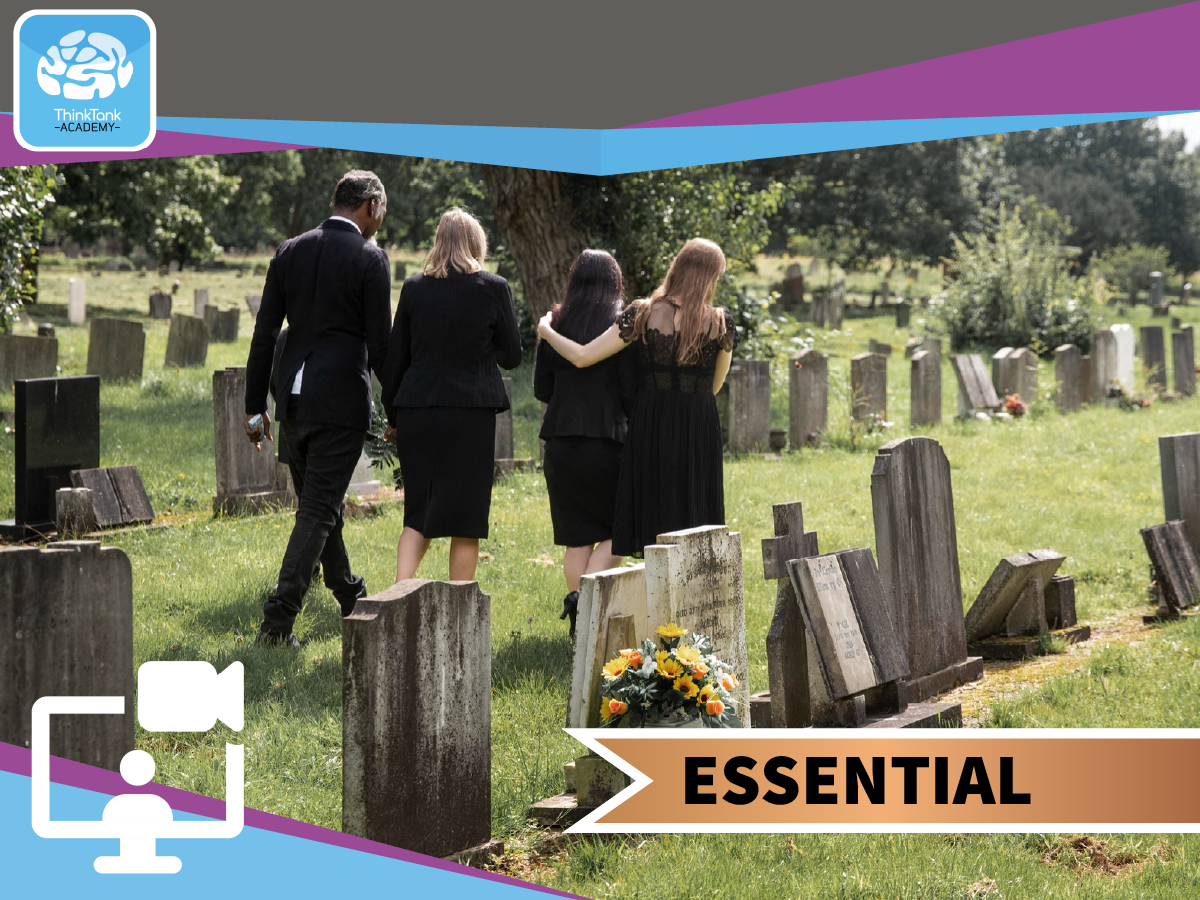

Loss and Bereavement - Adult and Children's Care - Essential Level
Course Overview Loss and Bereavement - Adult and Children's Care - Essential Level training course is a training session for those who are working with children and adults with the knowledge required to understand the issues involved in loss and bereavement. The course features a range of group work, activities including role play and discussions to enhance learner skill development. This training session can be accessed via a link and is accessible from a range of devices including IOS and Android platforms. This course offers a blended learning approach including a short scenario, a workbook, infographics and a classroom style training session. Aims & Objectives Explain what is meant by the term loss and bereavement Identify different definitions and models Explain personal reflections on loss Identify what staff can do to help Provide strategies on Looking After Yourself to consider avoiding compassion fatigue Course Audience Psychologists, Teachers, Speech Therapists, Learning Support Assistants, Residential Social Workers, Health Care Workers, Social Care Workers, Support Centre Practitioners, Youth Workers, Support Worker, Nursing Staff, Children’s Residential Care Workers, Education workers.



Life Story Work - Children's Care - Essential Level
Course Overview Life Story Work - Children's Care - Essential Level training course is designed to aid understanding and awareness of Life Story Work, it encourages each learner to reflect on their practices and others. An insight into the importance of Life Story Work especially in regard to identity. We will introduce models and strategies to improve Life Story Work and activities to support the learner will professional application in their areas of work, this will include recognising cultural, ethnical and disability needs and diversities. The course will also outline the importance of collecting relevant items as well as how to effectively support the individuals. The course will introduce a range of group work sessions with reflective practice built in to enable them to take this back to the children they support. There are also interactive activities and discussions to enhance learner skill development. This training session can be accessed via a link and is accessible from a range of devices including IOS and Android platforms. This course offers a blended learning approach including a short scenario, a workbook, infographics and a classroom style training session. Aims & Objectives Consider the impact of early childhood experiences and the importance of Life Story Work Understand the emotional impact of Life Story Work on children and carers Gain knowledge legislation, the aims and principles of Life Story Work Recognise barriers to Life Story Work and learn how to overcome them Be aware of the importance of identity in Life Story Work including cultural diversity Course Audience Residential Care Workers, Health Care Workers, Social Care Workers, Children’s Centre Practitioners, Youth Workers


Substance Misuse - Children's Care - Essential Level
Course Overview Substance Misuse - Children's Care - This is a training session for people working with children and young people who misuse substances. This course aims to support learners to understand Substance misuse and provides them with the tools should this be an issue for people they care for and support. The course will also help them to understand the dangers that substance misuse can present with and highlights the importance of prompt action when substance misuse is identified. The course features a range of group work, activities and discussions to enhance learner skill development. This training session can be accessed via a link and is accessible from a range of devices including IOS and Android platforms. This course offers a blended learning approach including a short scenario, a workbook, infographics and a classroom style training session. Aims & Objectives Identify the factors that can cause substance misuse Understand the different types of drugs, effects and risks and the ways to consume drugs so that learners are well informed of the signs Understand the substances most commonly used by children and young people How to recognise when a substance has been misused Explain what to do in an emergency and non-emergency situations Describe how to communicate with and discourage substance misuse Course Audience Health Care Workers, Social Care Workers, Children’s Centre Practitioners, Youth Workers, Education Workers, Adult Support Worker, Nursing Staff



ADHD Awareness - Children's Care - Essential Level
Course Overview ADHD - Children's Care - Essential Level training course intends to provide learners with knowledge and understanding of what ADHD is and what it presents as. It includes the different types of ADHD and describes ineffectiveness, hyperactivity and impulsiveness and discusses the causes. Legislation and interventions are included that can be followed in the workplace. The activities encourage reflection that can be implemented into practice. There is a quiz to complete at the end of the course to consolidate learning. A session re-cap is held where the learner can ask any further questions and key factors are stated by the tutor. Learners are given the opportunity to evaluate their learning experience. This course can be delivered in face-to-face classroom environment or a virtual classroom via a webinar: on PC, laptop etc. For mobile phones it is recommended to use the app for IOS or Android devices. Aims & Objectives Have a basic understanding of what ADHD is Understand how as a carer we support a child or young person with ADHD ADHD and their types Girls and Boys and the effects Causes of ADHD Theory behind ADHD How is ADHD diagnosed Course Audience Practitioners in the health and social care sector.
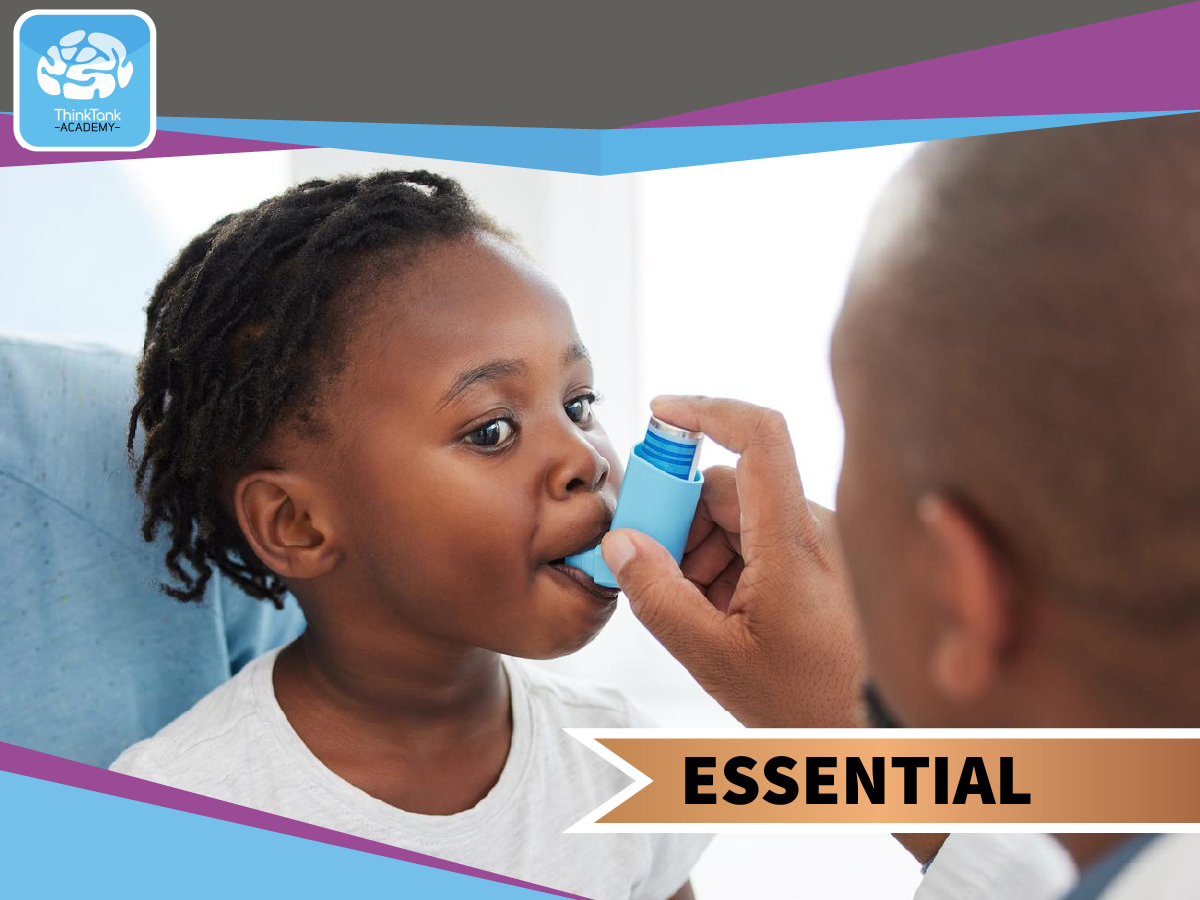

Administration of Medication for Looked After Children - Children's Care - Essential Level
Course Overview Administration of Medication for Looked After Children - Children's Care - Essential Level training course aims to support learners to understand the procedures of the homes including the recording responsibilities of the learners in the workplace. It will also cover the Rights of Medication Administration and highlights the adverse reactions that people may have to medication. The course features a range of group work, activities and discussions to enhance learner skill development. This is a half-day training session for people working with Children and Young People This training session is available in both face-to-face and virtual classroom settings. This course offers a blended learning approach including a short scenario, a workbook, infographics and a classroom style training session. Aims & Objectives Understanding the homes procedures relating to administration of medication How and what to record How to store and dispose medication safely Understand the rights of medication administration and what to do in the event of a reaction to medication Understand how to handle and avoid errors Course Audience Health Care Workers, Social Care Workers, Children’s Centre Practitioners, Youth Workers, Education Workers, Adult Support Worker, Nursing Staff